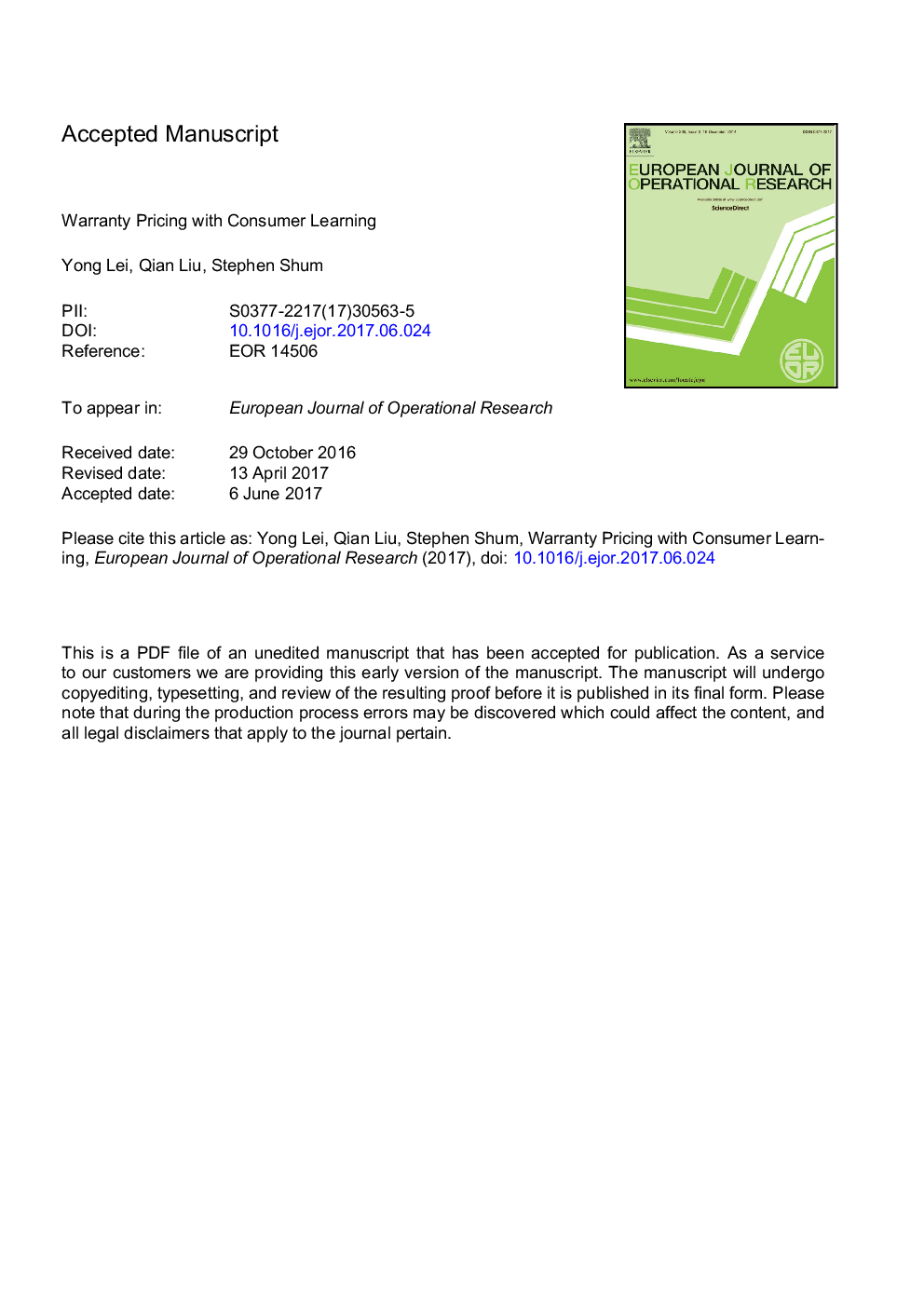| Article ID | Journal | Published Year | Pages | File Type |
|---|---|---|---|---|
| 4959389 | European Journal of Operational Research | 2017 | 40 Pages |
Abstract
We consider a problem in which a firm dynamically prices a product and its warranty service over time. Consumers can learn about the reliability of products based on warranty prices. A firm's optimal product and warranty pricing policies are characterized. We find that a warranty should be priced lower than the marginal warranty service cost, which implies that warranty sales will not generate profits directly. However, offering a modest warranty still benefits the firm's overall profits. We also show that consumers' beliefs and the firm's warranty policy converge in the long run. In a steady state, either a fraction of consumers will purchase a warranty or no consumer will purchase a warranty. Comparative statics analysis is conducted to show how factors such as a firm's warranty service cost, consumers' learning speed, and the heterogeneity of consumers' handling costs determine consumers' beliefs, the firm's warranty policy and profitability in a steady state. Lastly, we note that a firm benefits from consumer learning by hiding the information about the true product reliability only when the true product failure rate is relatively high.
Related Topics
Physical Sciences and Engineering
Computer Science
Computer Science (General)
Authors
Yong Lei, Qian Liu, Stephen Shum,
